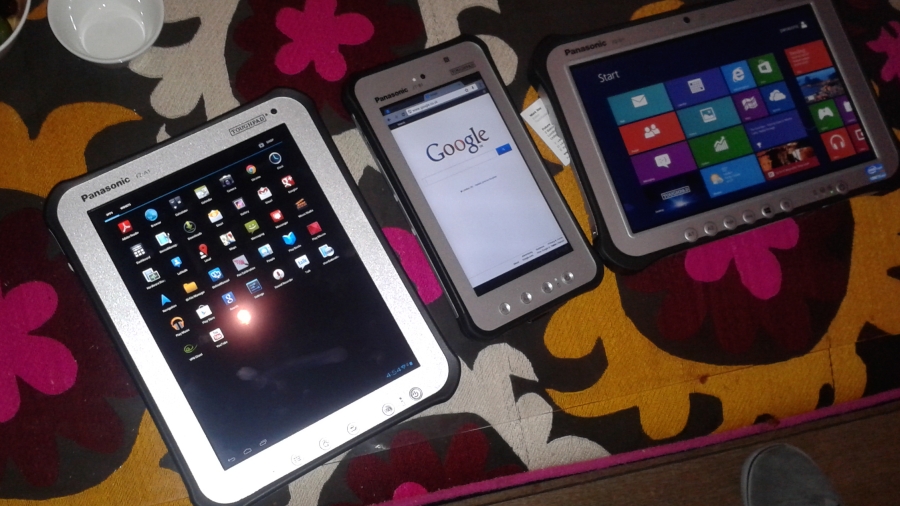
Panasonic is setting its sights beyond its established market for ruggedised laptops and tablets with its recently released range of Toughpads.
The three new tablets – FZ-A1, FZ-G1 and JT-B1 – are lighter than its existing range, which the company says could give it an edge in sectors where it so far has a limited presence.
Speaking to TRPro at a showcase for the devices, Chris Turner, Corporate Sales Manager, said: "The main thing from the Panasonic point of view is that in the past our core customers for Toughbooks have been in local government, the Ministry of Defence, utilities and blue light services.
"With the new devices, because we've been able to keep the weight down, we're hoping to expand into other sectors, notably retail, logistics and insurance. We think the flexibility of this range will give us a fresh impetus."
The FZA1, which was first launched to the press last year, is a 10.1-inch device weighing 970 grams running on Android 4.0 with a 1.2GHz dual core processor, 1GB memory and 16Gb storage.
The 7-inch, 545 gram JT-B1 also runs on Android 4.0, and has the same memory and storage spec with a 1.5GHz processor.
A Windows 8 option is also available in the form of the FZ-G1, which weighs 1.1kg, has up to 8GB memory, 128GB storage and a 1.9GHz, 3MB processor.
Are you a pro? Subscribe to our newsletter
Sign up to the TechRadar Pro newsletter to get all the top news, opinion, features and guidance your business needs to succeed!
Panasonic says that all three have been designed to withstand a 1.8 metre drop, have IPX5 water resistance and IPX6 dust resistance.
Turner said that the replaceable battery has a life of eight hours, and that it is realistic for a user to carry a replacement in the field and effectively double its life between recharges. He also highlighted that an ambient sensor reflects bright light back through the screen, making it possible to turn down the back light of the devices to save energy.
He said that Panasonic sees the market for the Android devices in tasks that involve sharing information and limited input of data, while the Windows 8 is more appropriate for content creation. The company is not making any predictions on which could be more popular.
It is also considering the potential for a 7-inch Windows 8 device that could run on either RT or Pro.
He added that, despite the growing popularity of tablets and their advantages for fieldwork, Panasonic believes there is still a future for ruggedised laptops.
"A lot of users still need a full keyboard for tasks such as writing reports, and we hope the current range will still attract customers," he said.